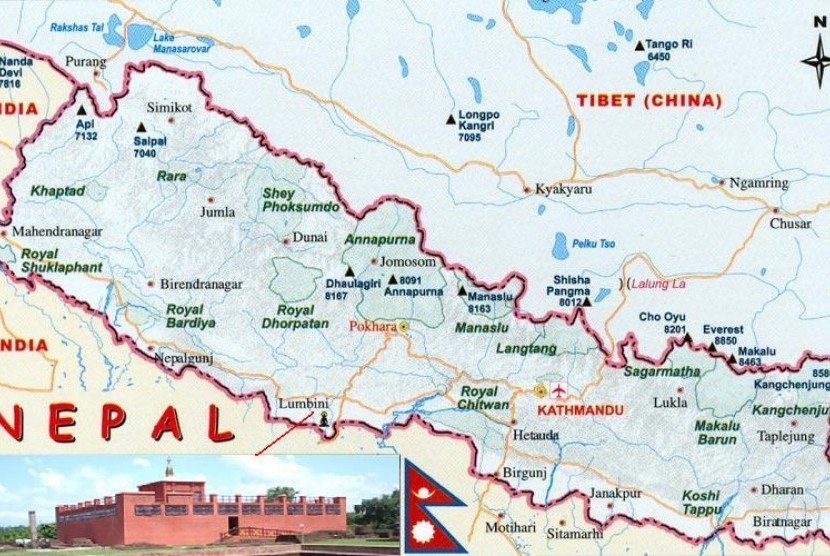REPUBLIKA.CO.ID, KATHMANDU -- Nepal will start repairs and reconstruction next week for nearly a million homes damaged by last year's deadly earthquakes, the head of a state agency said on Saturday, nearly nine months after the disaster left hundreds of thousands homeless.
Two tremors last April and May killed 9,000 people, injured more than 22,000 and damaged or destroyed more than 900,000 houses, forcing many to brave freezing temperatures living in temporary shelters made from tarps and corrugated iron sheets.
"We realise that the victims are very much in trouble. We'll start the reconstruction work from January 16," Sushil Gyewali, chief of the National Reconstruction Authority, told reporters.
The agency was launched in September but political squabbling has delayed the deployment of $4.1 billion pledged by foreign donors for reconstruction.
UNICEF estimates that more than 200,000 families affected by the quakes are still living in temporary shelters at an altitude above 1,500 meters (4,920 feet), where harsh winter conditions will continue through February.
The delay has been blamed for more than a dozen deaths since the onset of winter, mostly of people over 65, according to domestic media reports.
Gyewali said the agency would start training engineers, masons and other technicians and dispatch them to districts ravaged by Nepal's worst disaster on record.
Kathmandu has said it needs to train 50,000 people and has pledged up to $2,000 for each home destroyed by the quake.
Gyewali added that his agency would offer up to $15,000 in soft loans to each affected household for reconstruction.
The disaster spurred the country's feuding politicians to set aside differences and adopt a new constitution after a seven-year delay. But the charter sparked protests by ethnic Madhesi groups, who blocked key trade crossings with India and brought on severe fuel shortages.
Aid agencies say the shortages have constrained efforts to transport blankets, clothing and other essential relief materials to earthquake survivors in mountainous areas.
"We are in the middle of winter now and still struggling to survive without any support," said Kanchhi Bika, an earthquake survivor, outside her tarp hut near Kathmandu.
"I don't think the government really cares about us."


